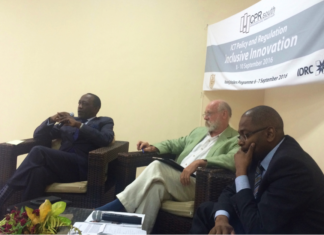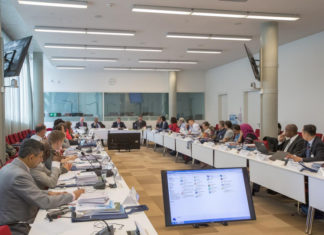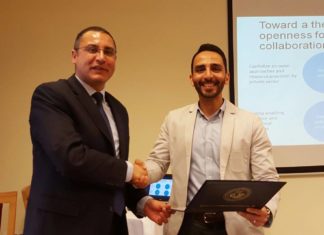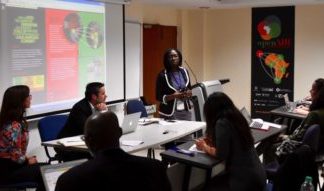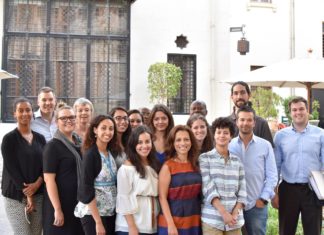Inclusive Innovation: Lessons from Africa for the World’s ICT Policymakers
Information communication technologies (ICT) can play a crucial role in promoting development, making societies more just, equitable, and inclusive of marginalized communities. To see how, some of the brightest young researchers from the “global South” met with established field leaders at the IDRC and COSTECH-sponsored 2016 CPRsouth conference in Zanzibar.
Open AIR NERG Attends WIPO-WTO Colloquium
Just last month, I had the opportunity to participate in the 13th WIPO-WTO Colloquium for Teachers of Intellectual Property held at World Intellectual Property Organization (WIPO) and World Trade Organization (WTO) headquarters in Geneva, Switzerland from 13 to 24 June, 2016. I am beyond thankful for this scholarship and enjoyed an intense two week programme, covering eighteen substantive topics touching on all areas of intellectual property (IP) law. There were thirty-nine experts from WIPO, WTO, WHO, UNFCCC, UPOV, NGOs ,and industry who took part in the Colloquium as speakers and I was among twenty-six participants selected from approximately 160 applicants from developing countries around the world.
Evidence-based Intellectual Property Policymaking
The intellectual property system is a crucial part of economic policymaking worldwide. It affects matters of profound importance, including health, education, nutrition, culture, science, technology and innovation policy. One might assume, therefore, that the global governance of intellectual property rights rests on a solid foundation of evidence. Think again. For over a century, intellectual property policy has been based largely on theoretical assumptions and political lobbying.
Twitter Recap of the Nairobi Workshop
Last month, Open AIR launched our inaugural case study workshop at the Centre for Intellectual Property and Information Technology (CIPIT), part of Strathmore University’s Law School in Kenya, and one of Open AIR’s hubs. The workshop sought to provide successful case study participants with an opportunity to present their proposals and brainstorm with their colleagues.
Open AIR Case Study Nairobi Workshop
In the first week of April 2016, the Open African Innovation Research and Training (Open AIR) network held a three-day workshop at our Nairobi hub, Strathmore University. The workshop included the Open AIR team and was primarily organized to bring together all the successful case study researchers in order to review, refine, and brainstorm about their upcoming research. There was also significant activity on Twitter, which can be read about here. All the case studies that Open AIR is funding fall under at least one of our major research themes: high technology hubs, informal sector innovation, indigenous entrepreneurship, and metrics and policies.
Hani Morsi Presents in Cairo
Hani Morsi, an Open AIR Post-Doctoral fellow at the Access to Knowledge for Development Center (A2K4D) in Cairo, gave a seminar last week entitled “Beyond openness: Investigating the success factors of open approaches to collaboration and innovation”. This was part of the Brown Bag seminar series of AUC’s School of Business.
Prof. Osei-Tutu speaks at the University of Ottawa
Too often, scholarly work and debates relating to Intellectual Property (IP) have focused on the protection and profits of the IP holder, as opposed to promoting open-access and the broader interests of the community. In her talk at the University of Ottawa on February 9th, Professor Janewa Osei-Tutu suggested we readjust the lens through which IP innovation is examined, using human development as the standard.
Open AIR Presents at Fourth Global Congress on IP and the...
By Victor Nzomo
In the midst of two decades of TRIPS and three decades of openness, more than 400 delegates from over 50 countries converged...
Open AIR presents at ATRIP
The Advancement of Training and Research for Intellectual Property (ATRIP) Conference provides a yearly opportunity for international experts and other academics in the field of intellectual property (IP) to come together and exchange current research. The set-up of ATRIP’s conference enables for ease of networking with similar speakers separated into common sessions. Tana Pistorius, ATRIP President, and her team of organizers, did a superb job in ensuring a diversity of, yet connection between, sessions. Sessions covered a range of topics from new ideas for leveraging traditional knowledge (or “innovation knowledge” as Susy Frankel stated), to plant breeder’s rights, to diversity, art and culture in IP and innovation.
June Open AIR Network Meeting in Cairo
When SSHRC and IDRC awarded sizeable, prestigious grants to support Open AIR in its third phase of research, the Network’s leadership promptly organized a face-to-face meeting at its North African Hub, the American University of Cairo. While a great strength of Open AIR is its ability to coordinate its research and administrative tasks remotely across its various hubs, personal meetings are invaluable when the Network needs to deal with specific overarching strategic issues.

